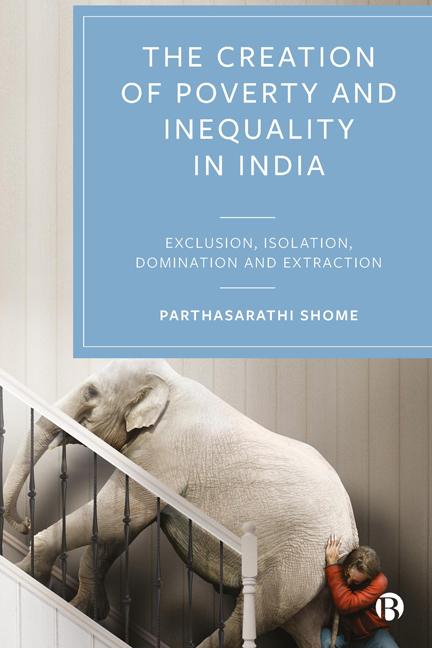Book contents
- Frontmatter
- Dedication
- Contents
- List of Figures and Tables
- Preface
- 1 Introduction
- Part I Macro-Economy and Human Development
- Part II Sources of Inequality and Poverty
- Part III Sectoral Effects
- Part IV Radical Humanism
- Appendix 2.1 Cash Use in India: A Cross-Country Comparison
- Appendix 2.2 Macro-Economic Comparisons: Selected Economies
- Appendix 4.1 Selected Country Tables
- Appendix 5.1 Evidence on Inequality in the US
- Appendix 8.1 Impact of Land Policy
- Appendix 11.1 Impact of Asset Transfer on the Poor
- Index
2 - Macro-Economic Indicators: A Backdrop
Published online by Cambridge University Press: 18 January 2024
- Frontmatter
- Dedication
- Contents
- List of Figures and Tables
- Preface
- 1 Introduction
- Part I Macro-Economy and Human Development
- Part II Sources of Inequality and Poverty
- Part III Sectoral Effects
- Part IV Radical Humanism
- Appendix 2.1 Cash Use in India: A Cross-Country Comparison
- Appendix 2.2 Macro-Economic Comparisons: Selected Economies
- Appendix 4.1 Selected Country Tables
- Appendix 5.1 Evidence on Inequality in the US
- Appendix 8.1 Impact of Land Policy
- Appendix 11.1 Impact of Asset Transfer on the Poor
- Index
Summary
Introduction
This chapter discusses selected economic indicators to place India in perspective, in particular in a comparison with China and, selectively, with Brazil. This reflects the premise that, in order to assess the state of poverty and inequality and their alleviation, an understanding of the basic macroeconomic conditions of their economies can be helpful. That is the objective of this chapter. Brazil, China and India are large economies, members of the Group of 20 (G20) countries, and are often brought up together in international forums. Thus, some comparisons and contrasts among them are inevitable.
To begin, should the performance of the macro-economy and economic growth be of relevance in poverty alleviation? The answer to this is in the affirmative as has been shown by Srinivasan (2001) in which he finds that ‘there is a robust association between reduction in absolute poverty and sustained and significant growth in aggregate income’ (p iv). Further, as an economy liberalizes, changing terms of trade and barriers to trade could increase inequality in the short run as some may be better positioned to benefit from the more open economic policies than others. Both China and India have experienced a similar phase. Therefore, complementary policies have to be in place to ensure that any increase in inequality is only temporary. Fourth, keeping in mind the caveats against causal interpretations of associations, some policies and factors seem to promote growth and reduction in poverty. On the whole, macro-economic stability, a disciplined labour force, public and private investment in education and health, high rapid development of economic infrastructure – power, transport, communications, roads and port facilities as provided in Chinese special economic zones (SEZs) – and the ease of doing business are believed to enable growth and associated with it, poverty reduction.
There are strong historical contrasts between India and China, the foremost being the political evolution in the two countries. China has experienced a dearth of fundamental human rights where economic and socio-economic decisions are the subject of a monolithic system, a framework that continues to this day and has decidedly worsened recently after a short interim period of improvement. Policy implementation occurs without much debate, earlier through a Marxist-Leninist regime, followed by state capitalism more recently.
- Type
- Chapter
- Information
- The Creation of Poverty and Inequality in IndiaExclusion, Isolation, Domination and Extraction, pp. 35 - 52Publisher: Bristol University PressPrint publication year: 2023



